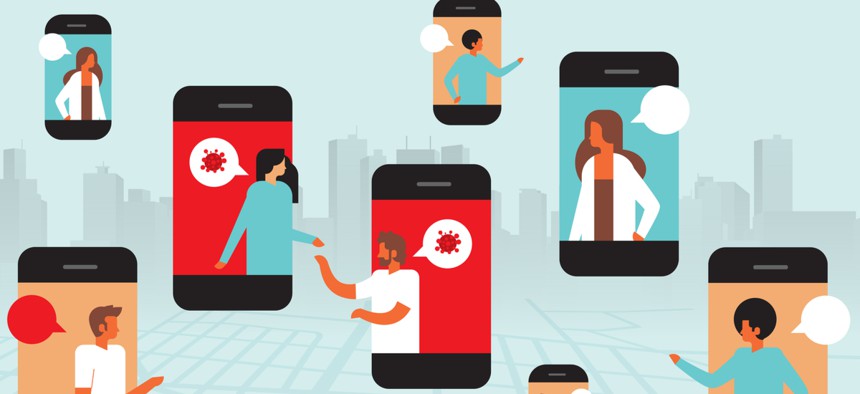Survey: 4 in 5 Americans Worried Pandemic Will Encourage Government Surveillance

Redkey USB/Shutterstock.com
Many Americans oppose intrusive technologies even if they’re intended to assist in the government’s response to coronavirus.
A majority of Americans are unwilling to trade their personal privacy rights for even temporary increased government surveillance measures aimed at tracking the coronavirus spread, according to a survey released Monday.
The survey found 52% of Americans believed their personal privacy rights trump the government’s potential use of technologies—such as collecting location-tracking data gleaned from smartphones—to combat the pandemic.
The survey also revealed 79% of Americans were either “worried” or “very worried” that any intrusive tracking measures enacted by the government would extend long after the coronavirus is defeated. Only 27% of those surveyed would give an app permission to track their location, and 65% said they would disapprove of the government collecting their data or using facial recognition to track their whereabouts.
“Even faced with a major global health threat, most people in America would oppose intrusive technological measures such as tracking apps to contain the spread of the virus,” said Edvardas Mikalauskas, spokesperson for CyberNews.com, which conducted the survey. The survey was based on the polling of a random sample of nearly 1,300 American adults.
The survey comes as the federal government grapples with how best to contain the spread of coronavirus. Though most states have issued stay-at-home orders and Americans’ use of smartphone applications that compile location data to track the virus remains optional. The federal government has explored partnering with large tech companies to collect location data from Americans’ smartphones to stunt the spread of the disease, and tech rivals Apple and Google partnered to create an API that could be a piece of a contact tracing system. Other nations, like China, have responded with more intrusive surveillance means to control the coronavirus.
“Policymakers must have a realistic understanding of what data produced by individuals’ mobile phones can and cannot do,” the ACLU said in a recent white paper on the subject. “As always, there is a danger that simplistic understandings of how technology works will lead to investments that do little good, or are actually counterproductive, and that invade privacy without producing commensurate benefits.”






